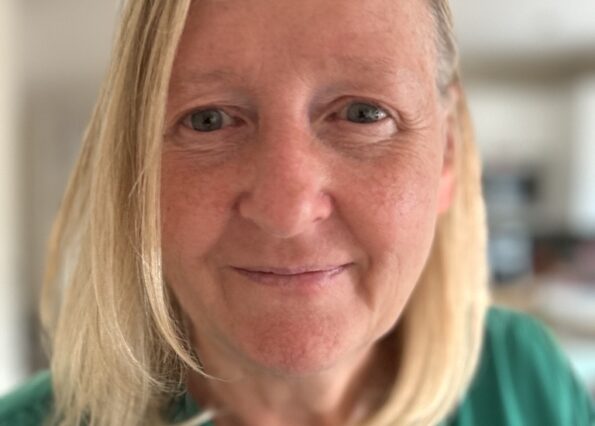In 2021, Shirley left the corporate world behind to become a foster parent. Now, she and her husband Paul, who works for the Metropolitan Police, are using their transferable skills to ‘help shape the children of tomorrow’.
Shirley and Paul have one daughter together and Shirley has two children from another relationship and between them they have fostered 21 young people. They currently care for two 10-year-old boys from different families and see their role as ‘helping make each child’s world a better place’.

FROM CORPORATE LIFE TO FOSTERING
At ISP, our foster parents come from all walks of life, bringing with them transferable skills that help them support children in their care. Between Shirley’s background in management and Paul’s role as a Community Support Officer, along with raising their own children, the couple have learned to stay calm, think quickly, and adapt their parenting style to meet each child’s needs.
Shirley said, “I’m an unusual foster parent because I come from the corporate world, when so many people don’t. I used to manage 13 people, so I’ve always been very hands-on, knowing how to get the best out of people.”
“I have always enjoyed getting to know someone and finding out the best way to help them reach their full potential, which is one of the skills I’ve taken forward into fostering.”
“I worked for my last company for 10 years, so I was there a long time. When COVID hit, a lot of people were furloughed, but they kept me on because I could do everyone’s jobs. I was working really long hours and, by the end of it, I felt burnt out and taken for granted.”
“We get this magazine delivered every month from the local council, and there’s always a double-page spread saying, ‘Could you foster?’ One day, I put it in front of my husband and said, ‘I could do this. We could do this.’ I wanted to leave my corporate job, but still wanted to work because I enjoy it, so we applied.”
THE JOY OF FOSTERING
Shirley and Paul have guided their own children, helping them discover their passions and find their own way in the world. Now, they want to do the same for the children they foster.
Shirley said, ‘One of the joys of being a parent is seeing what your children can achieve, and I want to help the children I foster to do the same.”
“I gravitate to people that I can help, and I always want to make it right and fix it. And that’s exactly what you do with fostering. I want to make things better, and I want to add value to their lives so they can go out into the world and be successful, like my own children.”
But how do they do it? Shirley shared the strategies that work for them.
GIVE YOUR OWN CHILDREN AN OUTLET
When the couple began fostering, their daughter was still very young, and they wanted to make sure she had something to take her mind off things as they adjusted to the change.
Shirley said, “Our daughter loves horses, so when we started fostering, we got her a horse because we thought she might need an outlet. I knew it wasn’t going to be easy and that it would have an impact on our whole family. While Paul and I could cope with it as adults, our daughter was quite young, but having a hobby really helped her.”
PUT YOURSELF IN THE CHILD’S SHOES
Welcoming a child into your home can feel daunting, but for a child whose whole world has just been turned upside down, those first moments are a chance to help them feel safe and welcomed.
Shirley explained, “These children are so resilient. When they arrive, they come in, smile, take a drink, and if they arrive late because it’s an emergency, I’ll say, ‘We’ve got to go to bed now because it’s very late.’
“They go into an unknown room, and they’re just into the unknown. I would be sick if that were me – I don’t know how they do it.”
“So, I put myself in their shoes and think about how I would want to be treated and what I can do to put them at ease in the first five minutes. I’ll tell them, “It’s going to be all right, you’re going to be fine, and this is what we’re going to do in the morning, so get a good night’s sleep.”
USE VISUAL AIDS
Whether it’s helping a child settle in at home or managing big emotions, Shirley often uses visual aids to support the children in her care. She said, “We had a girl come and stay with us one March. She had moved from house to house, and I wanted to help her feel settled and let her know she could stay as long as she needed.”
“I find visual aids really help, so I told her we were going to plant pumpkin seeds now, and they’d be ready in October for Halloween – so she knew she’d still be with us to pick them.”
TALK TO OTHER FOSTER PARENTS
There may be moments on your fostering journey when you need a little advice or reassurance from other foster parents who’ve faced similar challenges. Shirley relies on her support network and encourages all foster parents to attend group sessions.
She said, “With ISP, we have group supervision, and it’s so important to go along because you can bounce ideas off other foster parents. I’ve heard so many stories and learned a lot from the more experienced carers. They’ve taught me so much that now, when challenges come up, I know what to do. They’ve shown me that you really do have to think outside the box sometimes.”
BE PROACTIVE RATHER THAN REACTIVE
A big part of being a therapeutic foster parent is about carefully responding to a child’s behaviour rather than reacting in the heat of the moment. Shirley explained, “You have to be proactive rather than reactive, and stay calm even in tricky situations.”
“Like, if someone throws something at me, I’ll take five minutes to process what’s just happened before I respond. I can’t make a snap decision; I need to think it through. I’ll say, ‘Let me have a think about this and then I’ll come back to you’. Because if you make a decision straight away, it might be the wrong decision, because you haven’t had time to properly process it.
IT’S NEVER TOO EARLY TO PREPARE CHILDREN FOR LEAVING CARE
Shirley wants the children in her care to succeed and lead full lives when they leave care, so she starts preparing them for independent living early.
She said, “When we leave for school, I’ll take five minutes at the front door to check they’ve got everything they need for the day and encourage them to think about it for themselves. I’ll say, ‘I’m prompting you and reminding you now, but when you’re living independently, no one else is going to do your thinking, you’re going to have to do it for yourselves.’”
“I’m also trying to teach them about budgeting. I’ll walk around Iceland with one of the boys, and he’ll say, ‘So, if I get £70 a week, let me see if I could feed myself for seven days.’ He’ll get out his phone or calculator and work it out. I’ll remind him, ‘Don’t forget, you’ll also need money for travel, your phone, and your electricity.’”
“I think you’re never too young to start learning about budgeting and managing money.”
FIND EACH CHILD’S FEEL-GOOD FACTOR
By really getting to know the children in her care, Shirley has found ways to help them engage with learning in a way that feels personal and meaningful to them. She explained, “We zone into what makes each child feel good and use it to respond to them.”
“We’re trying to help one of the boys improve his English and maths skills, so I thought, ‘How do I engage him in a way that makes him want to learn?’”
“Well, he loves football and is always saying, ‘When I’m a famous footballer…’ So I’ll say to him, ‘When you’re a famous footballer playing for Arsenal, you’re going to have a contract, and what if you can’t read that contract? We need to get you into a habit of reading.’”
“And for maths, I’ll say, ‘You’ll need to work out how much you’re getting paid and what you’re paying your manager, you need to be good at maths to do that.’ When you find their feel-good factor, you’re halfway there.”
CHOOSE THE RIGHT FOSTERING AGENCY
Shirley emphasises how important it is to find a fostering agency that’s the right fit for your family. She said, “I chose ISP because they’re a therapeutic fostering agency, and I knew we would be caring for the children who are hardest to place. For me, that’s the challenge, and in life, I’m a fixer.”
“I’ve always said I want to foster teenagers, because they’re the group no one else seems to want. I’m happy with teenagers. As it happens, I’ve got 10-year-olds at the moment, but I’ve also got the teenage years to look forward to.”
“I’ve built a good relationship with ISP. The staff are really supportive, and I’ve got a great social worker who’s very hands-on, and that makes all the difference.”
“I’m so glad I became a foster parent with ISP because I can really see the positive difference we are all having on children who’ve had a difficult start to life.”
GO INTO IT WITH REALISTIC EXPECTATIONS
Shirley is encouraging people from all walks of life to consider fostering, but to start the journey with realistic expectations, she said: “When you go into fostering, you can’t expect the children to be grateful. They just want to be back with their families and don’t see how badly they’ve been let down.”
“Don’t try to take the place of their family; instead, see fostering as making their world a better place until they can return home or leave care.”
INSPIRED BY SHIRLEY’S JOURNEY?
If you’ve been inspired by Shirley’s fostering journey and think you could provide a safe, stable, and therapeutic home for some of the most vulnerable children and young people, we’d love to hear from you. Call us on 0800 0857 989 or submit an online enquiry form, and we’ll be in touch.






